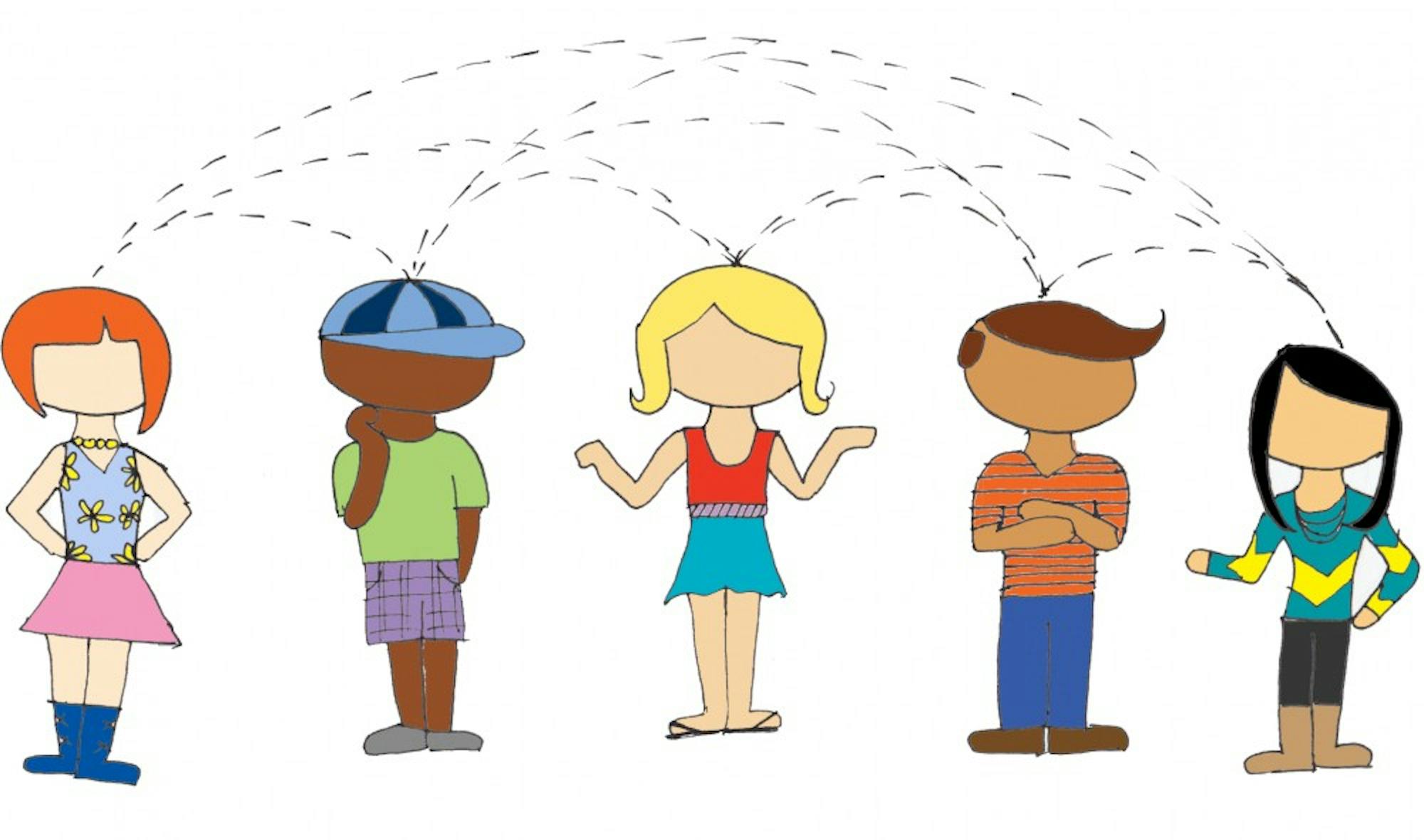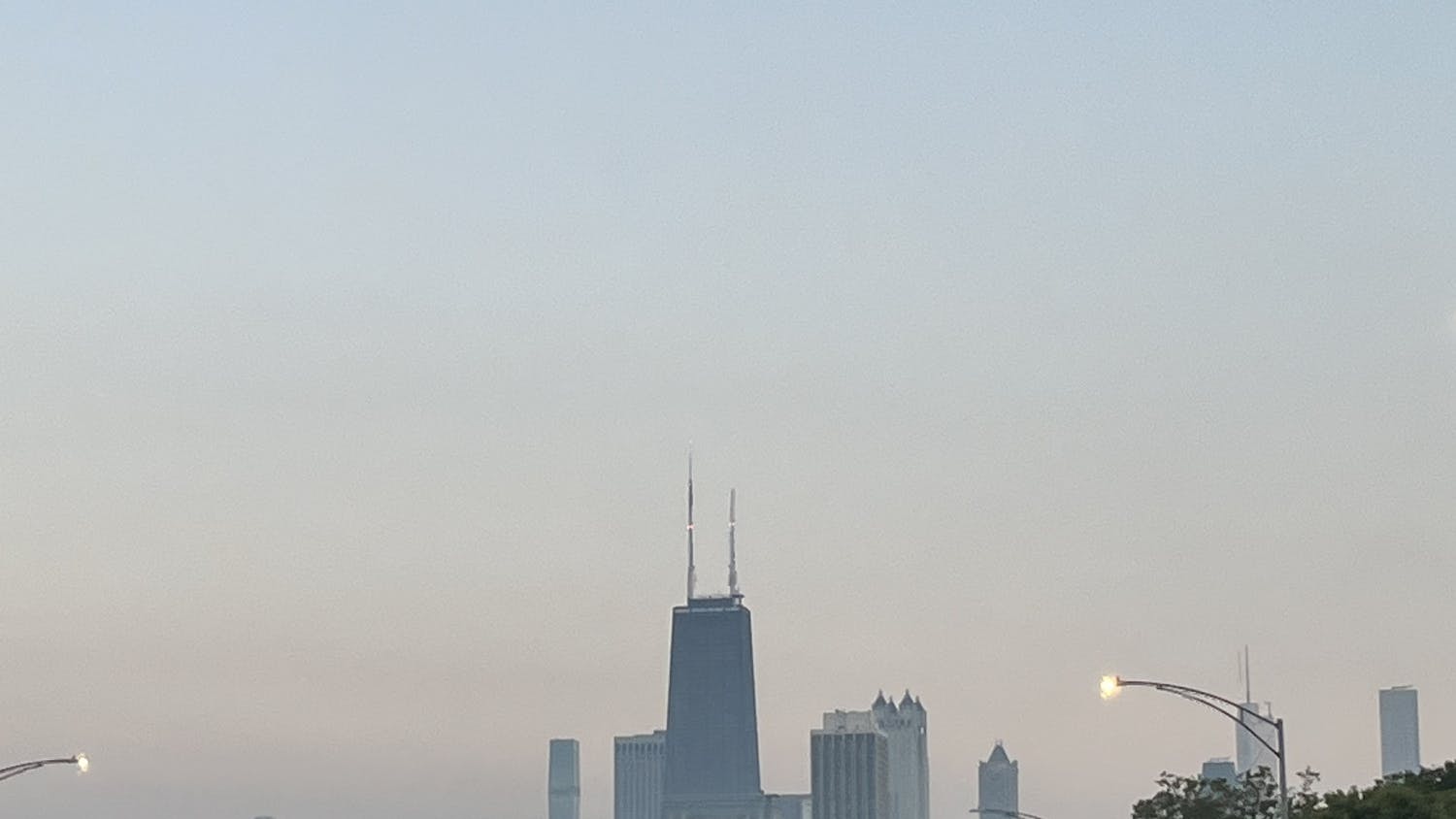In the heyday of sophomore summer, the hot air clung to campus like a sweaty bed sheet, a strained bubble threatening to burst, saturated with a tantalizing blend of feverish heat and fervent youth. The Connecticut River sparkled, beckoning the glare of the rising sun creeping from the east. Down Tuck Drive, she was sitting alone on a bench. It was uncharacteristically early, and campus had only just begun to stir. In the stillness of the morning, she was numb.
Numb in a way that dwarfed the lingering ache from having her head smashed against a wall. Numb in a silencing, helpless way. In the way sexual assault is numbing.
***
In recounting her story to me, she told me she had been sexually assaulted — well, raped, she clarified, but she hates using that word.
The term “sexual assault” can sometimes confer a sense of formality and dignity — in this particular case upon an inherently callous, undignified and degrading act. The word “rape” is derived from the Latin verb “rapere,” which means “to seize,” or to attack or take with force and violence. You cannot seize something in a formal or dignified way.
In general, people fear feeling uncomfortable. We are afraid to appear as though we “care too much,” whether that means calling rape what it is or just sending consecutive text messages to a new friend.
In the context of fleeting 10-week terms compounded by the D-Plan’s erratic nature, we are left with a student body fragmented by the strictness of time, former health education programs coordinator Kari Jo Grant said.
“When you get to a place that’s super fast-paced and everybody’s time is of incredible value, there’s that inherent sense of not wanting to waste someone’s time,” she said.
The search for unity at Dartmouth may not be as apparent as, say, our upcoming final exams, but certain milestones we associate with our experience here — Dimensions, Dartmouth Outing Club first-year trips, sophomore summer and senior spring — reveal the value we assign to our rare periods of shared time together.
Yet we pride ourselves on our independence, and we are rightly encouraged to chase down our passions and grow in our own directions. For the most part, we navigate much of our personal development alone. As we are doing so, it’s easy to lose track of our relationships.
A Duke University and University of Arizona study showed that Americans had fewer close friends in 2006 than they did two decades prior. The average American in 1985 had around three family and non-family members he or she felt comfortable discussing important matters with, the study reported. In 2004, nearly half of Americans — double the figure from 1985 — said they discussed important matters with one other person, including family.
We are, however, capable of maintaining a far greater volume of peripheral or non-intimate relationships, according to anthropologist Robin Dunbar, whose theory argues that people can maintain around 150 stable relationships at a time.
At a small school, it’s not hard to compose a lengthy list of acquaintances. Yet there is a pervasive sense of loneliness — of being alone in a crowded room, Cedar Farwell ’17 said.
“It almost feels personal when you feel lonely, like somehow you’re doing something wrong,” he said. “As if Dartmouth doesn’t care for you, or your friends don’t care for you, specifically.”
Farwell said that in his experience, the most important aspect of building a close relationship is making an investment and taking a stake in another person’s well-being.
“It’s really hard to put yourself out there to people here because it’s hard to tell your story in a way that feels genuine, especially when everyone is always so busy,” Farwell said. “Empathy and sympathy are very different, and sympathy doesn’t always give people the same sense of being cared for.”
Particularly because Dartmouth attracts many “perfectionistic” students, a lot of work and time is invested in keeping up appearances, Grant said.
“Vulnerability is so difficult to express,” she said. “We worry whether others will be able empathize.”
On both a personal and an institutional level, students are driven by a sense of transience rooted in the D-Plan and our fast-paced terms, Eliana Piper ’14 said.
“When nothing is permanent, and you’re not really held accountable for things, you have a culture of, ‘Why not? It’s just going to move on,’” she said. “Dartmouth has a culture of being productive without reflection, of moving without stopping.”
According to psychologist Erik Erikson’s theory on stages of development, people move through eight stages of psychosocial development, each of which is associated with a “crisis” that determines how we construct our identity. Our college years happen to fall between stage five and stage six, those that most heavily emphasize relationships. Erikson posits that during this time, we struggle to define our identity and our appearance to others, and as young adults, we may feel isolated when we are unable to make the sacrifices and compromises that intimate relationships require.
Farwell said that coming from a high school graduating class of 35 students, he was immediately struck by how “impersonal” Dartmouth felt compared to his collaborative high school experience. Then, he said, he felt “a sense of collective responsibility” with his classmates.
“Even if you didn’t get along with everybody, you were really in it together,” he said.
Factors such as the length of our terms and the size of our student body, however, often facilitate forming acquaintances but not intimate friendships, Alexia Pereira ’14 said.
“You can easily become surface-level friends with a lot of really cool, enjoyable people, but you don’t often get into really serious situations where you want to share your story,” Pereira said. “If people are well-versed in thinking the thoughts and feelings of those who are going through something rough — essentially, being empathetic — it’s easier to notice issues, and the signs are always visible.”
Building deeper relationships, then, requires conscious effort and often some degree of self-consciousness. After rushing her sophomore fall, Pereira especially noticed our need to justify reaching out or connecting with others. She described how repeatedly engaging with sisters she didn’t know as well seemed almost taboo, as if “trying too hard” made her seem as though she cared too much.
“We’re so scared of overstepping,” Pereira said. “It’s not that we’re actively ignoring each others’ problems. A lot of the time, it’s about learning how to navigate situations and learning how to help someone.”
Grant said that Dartmouth students often operate on the idea of “tolerating” rather than truly handling our hardships because the transient nature of the College’s terms and our constantly shifting community of students makes it challenging to reflect on an emotional level.
“If we don’t make time for each other and that intentional relationship development, there will always be a sense of being unfulfilled, off-center and off-balance,” Grant said. “It can be really hard to talk about, and it requires emotional and personal work.”
***
She sat alone on the bench until a friend who happened to be jogging by found her and walked her home. She remembers seeking help from the College and being passed around from one “resource” to the next, repeating and reliving her story again and again, until she finally decided to go on Google and find a therapist in town. She remembers opening up to her close friends and her friends crying for her pain.
As we sat together on a Thursday evening, she reflected on her past experiences, warning me in advance that she doesn’t really talk about emotions, so not to be alarmed if she broached the subject casually.
“We’re so isolated, our lives here get so wrapped up in the Dartmouth bubble we forget there are more important things than work and going out,” she said, reflecting on the feeling that Dartmouth’s community does not abide by a unifying code of conduct. Creating close friendships is viewed as an anomaly, she added, since we show very little common courtesy toward those we are merely acquainted with on a regular basis.
“We’re scared of burdening others, and we’re scared of taking on other people’s burdens,” she said. “Knowing that someone feels comfortable enough to come to you — that’s a huge milestone in any friendship, and it’s the best feeling.”




